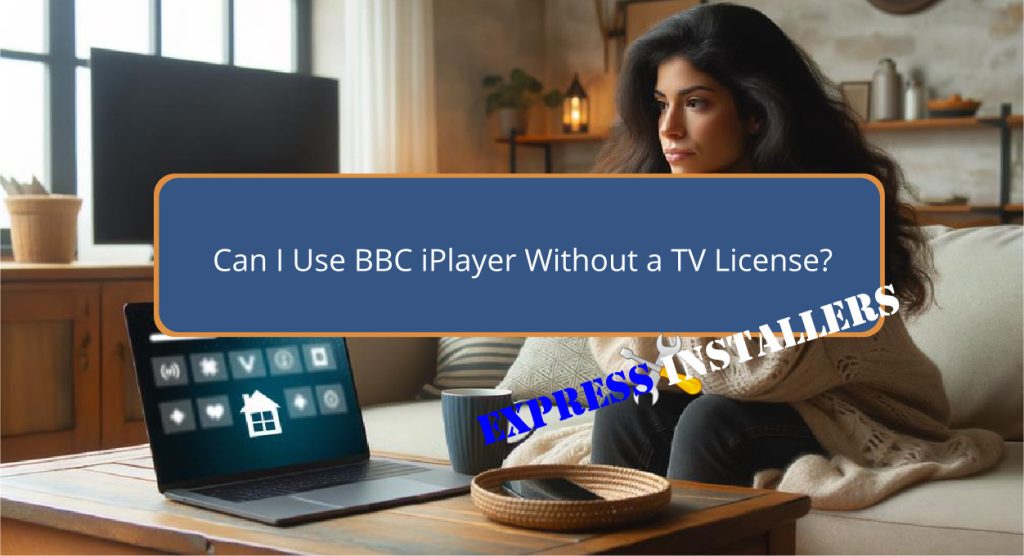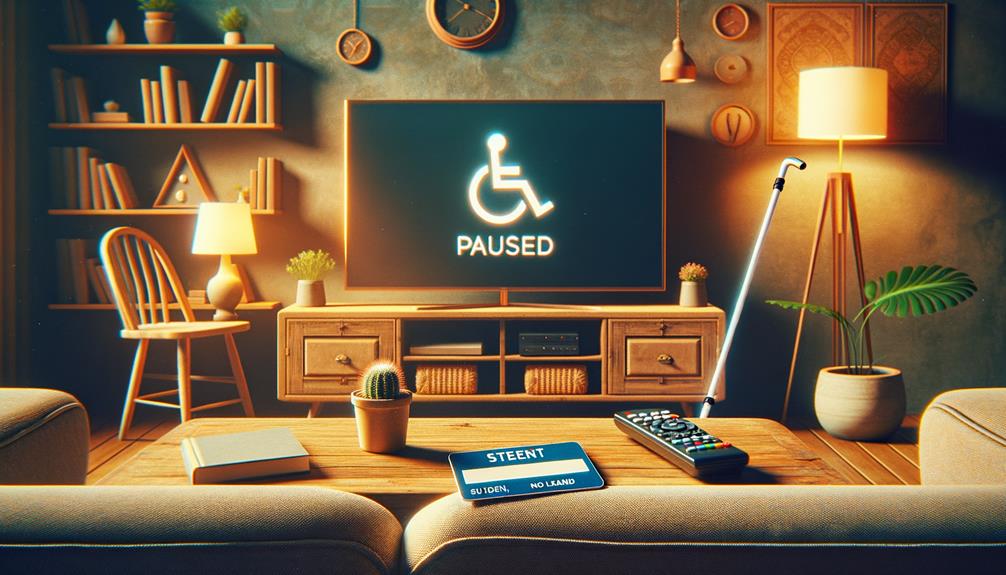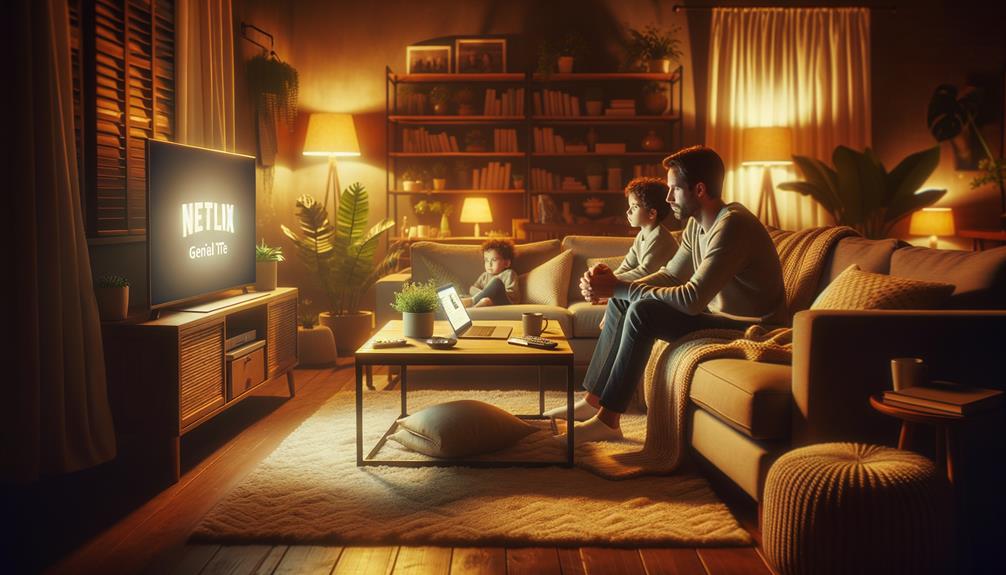
To legally use BBC iPlayer, a TV license is required, as stipulated by UK broadcasting regulations. This requirement applies irrespective of whether content is watched live or on-demand.
Compliance is vital to guarantee uninterrupted access and avoid legal consequences. Non-compliance can lead to prosecution with possible fines up to £1,000, emphasising the importance of adhering to licensing laws.
Although some users explore exemptions, such as watching on battery-powered devices, a thorough understanding of these conditions is essential to avoid unintended violations.
Further exploration of these topics offers additional insights into managing your viewing requirements lawfully.
Quick Summary
- A TV Licence is required to watch or download shows on BBC iPlayer.
- The licence covers both live streaming and on-demand content via iPlayer.
- Non-compliance with licensing requirements can lead to legal repercussions, including fines.
- There is no exemption for using battery-powered devices when it comes to iPlayer.
- Students must also have a TV Licence to use iPlayer, even if only using a personal device.
Understanding TV Licensing Requirements
To legally view content on BBC iPlayer, a TV Licence is invariably required under current regulations. This requirement extends to all forms of viewership, including online streaming on various devices.
It is crucial for users, such as students, tenants, and lodgers, to verify that their TV Licence is up-to-date to avoid any interruptions in accessing BBC iPlayer.
License renewal is a critical step that must be taken annually to maintain lawful access. The process has been streamlined for convenience, allowing renewals to be completed online.
This ensures continuous compliance with the licensing regulations, thereby enabling uninterrupted viewing of BBC programming through BBC iPlayer.
It is imperative that all viewers adhere to these guidelines to legally enjoy the services offered.
Legal Implications of Non-Compliance
While understanding the requirements for TV Licensing is important, it is equally necessary to recognise the legal consequences that stem from non-compliance.
Accessing BBC iPlayer without a valid TV Licence is not only a breach of licensing terms but also a legal violation that can trigger severe repercussions.
Individuals found using iPlayer unlawfully may face prosecution, highlighting the serious legal ramifications of such actions.
The potential consequences include fines up to £1,000, underscoring the significance of adhering to licensing laws.
It is essential for users to realise that non-compliance can lead to significant legal challenges and financial penalties, reinforcing the importance of maintaining a valid TV Licence when using BBC iPlayer.
Alternatives to Watching Live TV

In addition to exploring alternatives to live TV, viewers can enjoy a variety of streaming services such as Netflix and Amazon Prime, which do not require a TV license.
These platforms offer extensive libraries of on-demand content, enabling users to watch movies, series, and documentaries at their convenience.
Unlike traditional broadcast methods, these streaming services provide a user-driven experience free from the constraints of scheduling, allowing for a more tailored viewing experience.
Moreover, the availability of high-quality, diverse content caters to a wide range of tastes and preferences, making these services a popular choice among consumers seeking flexibility and autonomy in their entertainment options.
Navigating the Iplayer Loophole
Understanding the BBC iPlayer loophole provides an opportunity to access on-demand content without a TV license, an important consideration for those seeking alternatives to traditional live TV.
This exemption primarily applies under specific circumstances, such as the use of battery-powered devices.
Such devices, when not plugged into the mains, may allow viewers to watch on-demand programs without needing a license.
Additionally, student conditions offer further nuances; students can utilise iPlayer without a license if watching on a device powered solely by its internal batteries and not connected to an aerial or plugged into the mains.
Grasping these details is vital for legally navigating the complexities of TV licensing with respect to iPlayer usage.
TV Licence Discounts and Exemptions

Several exemptions and discounts are available for certain groups under the TV licensing regulations, which greatly alter the financial obligations associated with TV viewership.
Understanding the eligibility criteria and exemption options is essential for those who may qualify for reduced costs or complete exemptions.
For instance, over-75s can access a free TV licence if they receive pension credit, reflecting a significant change in eligibility criteria.
| Group | Discount/Exemption | Eligibility Criteria |
|---|---|---|
| Over-75s with Pension Credit | Free Licence | Must receive Pension Credit |
| Blind or Severely Sight-Impaired | 50% Discount | Proof of impairment required |
| Care Home Residents | Special Concessionary Rate | Individual licence needed for personal TV |
| Residents of Crown Dependencies | Varied Rules | Specific to region (e.g., Isle of Man) |
| Other Specific Groups | Discounts Available | Defined by Local Regulations |
This structured approach helps clarify who can benefit from these provisions, ensuring all eligible individuals are informed.
Consequences of Unlicensed Viewing
Engaging with BBC iPlayer without a proper TV Licence can lead to significant legal consequences, including fines and penalties.
The licensing authority actively monitors the usage of this service to identify unlicensed viewers.
Those found in violation of the regulations may face potential fines, which serve as a deterrent against unauthorised viewing.
The repercussions extend beyond financial penalties; legal actions could include prosecution, which might result in a criminal record.
It is important to understand that using BBC iPlayer, which is a privilege granted under specific legal stipulations, without adherence to these regulations invites serious penalties. Hence, unauthorised use is strongly discouraged to avoid these severe consequences.
Ensuring Compliance With TV Licensing

To guarantee lawful access to BBC iPlayer, it is crucial that users secure a valid TV Licence in accordance with licensing regulations.
Ensuring compliance involves several key steps that can safeguard users against potential legal consequences and facilitate the license verification process.
Here are measures to ensure adherence:
- Purchase and Renewal: Obtain a TV Licence directly from the TV Licensing authority and ensure it is renewed annually.
- Accurate Registration: When signing up for BBC iPlayer, provide truthful and accurate information that matches the details on your TV Licence.
- Regular Updates: Keep your TV Licence information up to date, especially if you move or change your viewing habits, to avoid discrepancies during license verification checks.
Frequently Asked Questions
What Happens if You Watch BBC Iplayer Without a TV License?
Watching BBC iPlayer without a TV license exposes individuals to license enforcement actions, including prosecution and fines. Non-compliance leads to significant penalty risks, underscoring the necessity of adhering to licensing regulations.
What Can I Legally Watch Without a TV Licence?
Legally, without a TV licence, you can watch non-live, on-demand content from services other than BBC iPlayer, leveraging license exemptions and exploring various streaming alternatives that offer a range of films and series.
Can I Use BBC Iplayer Without Registering?
To use BBC iPlayer, registration is mandatory, ensuring compliance with user privacy standards. This process involves providing personal details to verify identity and manage content access effectively and securely.
Can I Watch BBC Iplayer for Free?
BBC iPlayer is freely accessible within the UK, subject to geolocation restrictions. However, users benefit from a subscription by legally accessing a broad range of content with a required TV Licence.
Conclusion
To sum up, compliance with TV licensing laws remains crucial when engaging with BBC iPlayer, given the legal framework that governs its use.
Exploring legitimate alternatives and understanding potential exemptions can provide lawful viewing options.
However, circumvention of licensing requirements not only incurs legal risks but also undermines the funding mechanism essential for content creation.
Viewers are advised to guarantee compliance to avoid the negative ramifications associated with unlicensed viewing.
